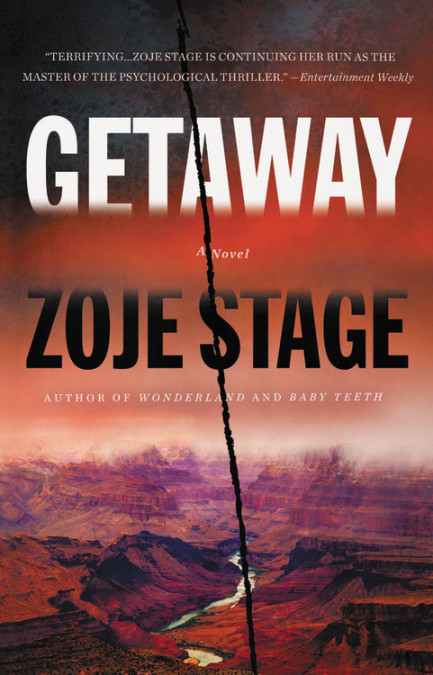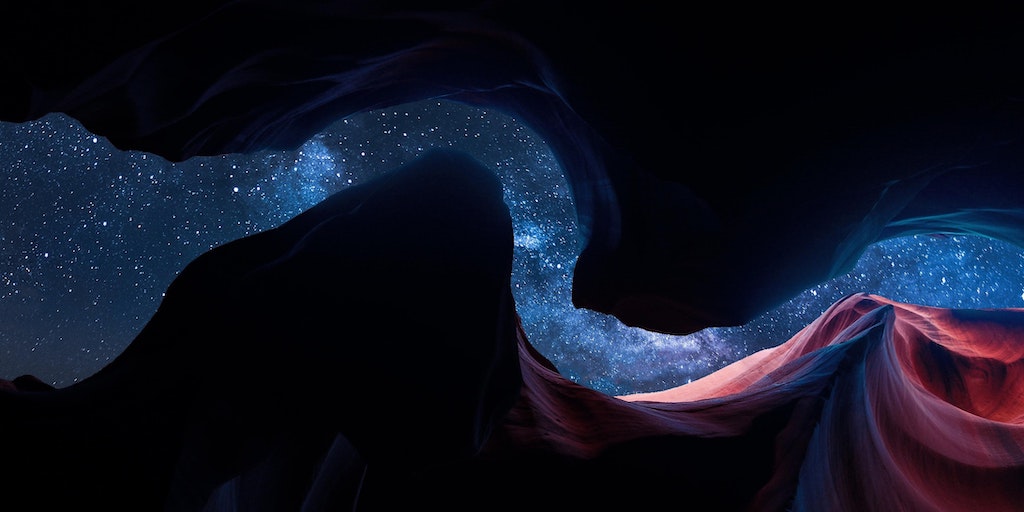A week-long camping trip in the heart of the Grand Canyon is an attractive setting to both backpacking enthusiasts and vicarious hikers alike, considering how the past year and a half has pushed many a homebody into outdoor explorations. Zoje Stage harnesses that need for escape in her new psychological thriller Getaway, which reunites three estranged friends (two being polar-opposite sisters) all seeking to recover their life paths from defining past traumas. But if Neil Marshall’s 2005 horror classic The Descent taught us anything, it’s that a group of women should never embark on a risky adventure when they still have unresolved baggage!
Imogen Blum, an author struck with writer’s block and mild agoraphobia after a shooting at her local Pittsburgh synagogue, reluctantly joins sister Beck (a doctor) and their former high school bestie Tilda (a reality TV star-turned-Instagram influencer who just landed a six-figure book deal) on a camping trip in the Grand Canyon. While Imogen is aware of Beck trying to force a reconciliation between Tilda and herself—after “The Thing” that splintered their friendship in college—the real reason that Imogen joins is her yearning for the outdoors as healing balm.

Thanks to plenty of family backpacking trips through this same demanding yet inspiring national wonder, Imogen and Beck have grown up with a reverence for the Canyon, with Imogen in particular ascribing Judaism’s concept of tikkun olam, or repairing the world, to her interactions with nature. That’s what makes it so upsetting, for both the trio and the reader, when their supplies suddenly start going missing. As Beck stubbornly leads the others further into the Canyon, they encounter a threat that will challenge their survival skills as well as their capacity for empathy and forgiveness.
Between her own experiences camping in the Grand Canyon as well as the unique accounts she has collected, Stage has clearly done extensive research into the backpackers’ lifestyle and ethos. Both seasoned hikers and inexperienced readers will feel as if they have their own personal tour guide through the Canyon, picking their way along the Hermit Trail and steeling their nerves to cross the Boucher Trail. Stage balances the perils of nature with the mundane repetitions that keep a hiker alive, from proper posture for getting packs on and off to carefully counting out iodine tablets for the creek water. Through these personal rituals, the sisters’ emotional connection to the Canyon comes through loud and clear as an echo—as does their determination to grapple with the intruder who ruptures their sacred space.
Though Stage’s other books (Baby Teeth, Wonderland) have flirted with the supernatural in their premises, there is little suggestion that what the girls confront in the Canyon is anything but the very human horror of someone who simply does not belong there. In that, Stage is incredibly effective in depicting first the intrusive thoughts whenever the rare stranger passes by their campsite (but what if a knife suddenly cuts through my tent?) and then the sense of violation when the next morning Imogen witnesses their pack of food cut open and rummaged through with clear intent to steal. Backpackers are supposed to operate by an elevated code of ethics, and yet human selfishness and other murky motives have penetrated what was supposed to be her respite from the evils of the world.
Heightening this isolating tension is the fact that the girls are only a few days into their week-long trip and have completely unplugged, stowing their smartphones back at the starting point. Their only tools for documenting this trip are their own five senses, and a retro digital camera that influencer Tilda can’t resist bringing along, so she’ll have material for future Instagram content. (Though it feels like a missed opportunity to introduce a potential Chekhov’s camera and then not use it to reenact one of the creepiest camping urban legends, in which the owner wakes up to find photos taken while she was asleep.)
The book’s action picks up when the stranger becomes a flesh-and-blood threat in escaped convict Gale. Their well-meaning attempt at connecting with someone who has already breached their campsite puts the three friends on a terrifying journey that recontextualizes their bonding trip from women versus nature to women versus man. Though Stage’s tendency to write in short, staccato chapters can sometimes create uneven pacing, her instincts are spot-on for crafting high-pressure moments that will have the most chilling effects: When Imogen awakens to Gale nonchalantly holding his hunting knife to Tilda’s throat, the reader stiffens up with the same paralyzing fear.
Despite Imogen’s repeated attempts to regard Gale as more man than monster, he ultimately comes across as a stereotype of the uneducated, offensive hick. Every detail of the girls’ lives, from Beck’s sexuality to Tilda’s ethnicity, is an opportunity for him to spout something bigoted that does little to garner any sympathy.Yet where there is common ground among this unlikely foursome is that Gale, Imogen, and Tilda of them share the experience of a singular event altering the course of their life—not just a loss (of a loved one, of bodily autonomy), but the irrevocable sense that every step hereafter is to not further fuck up their lives. This manifests as either violent or self-depriving self-preservation, trapping them in cycles of survival that often leave literal or figurative victims by the wayside.
As Imogen keenly observes, the real problem trapping them in the Canyon—beyond Gale’s paranoid ability to anticipate their desperate next steps—is the girls’ breakdown in communication. They are so out of sync with one another that they have no hope of organizing an escape plan—in fact, more often they are faced with the awful possibility of sacrificing one of their group for the others to make it out. Yet because the reader remains firmly in Imogen’s perspective, the tension does not always stretch as taut as it could. Stage might have been better served to alternate between Imogen and the others, playing with multiple points of view (as she did to memorable effect in Baby Teeth) to ratchet up the suspense of who might make it out, and what they might have to offer up in order to do so.
Stage’s has cleverly set up an exploration of both meanings of Getaway: longing for a break from the stresses of daily life, contrasted with the desperate attempts to flee an unimaginable life-threatening situation. If you’ve been daydreaming about your own ambitious foray into nature, you would do well to read Stage’s cautionary tale about both keeping your wits about you when crossing perilous drops, but especially being aware of all sorts of people you might meet on the trail.
apple
apple
apple
Order Getaway now:
Apple | Bookshop | Amazon | Barnes & Noble | IndieBound
Plus, Zoje Stage takes us behind the scenes of Getaway here.



